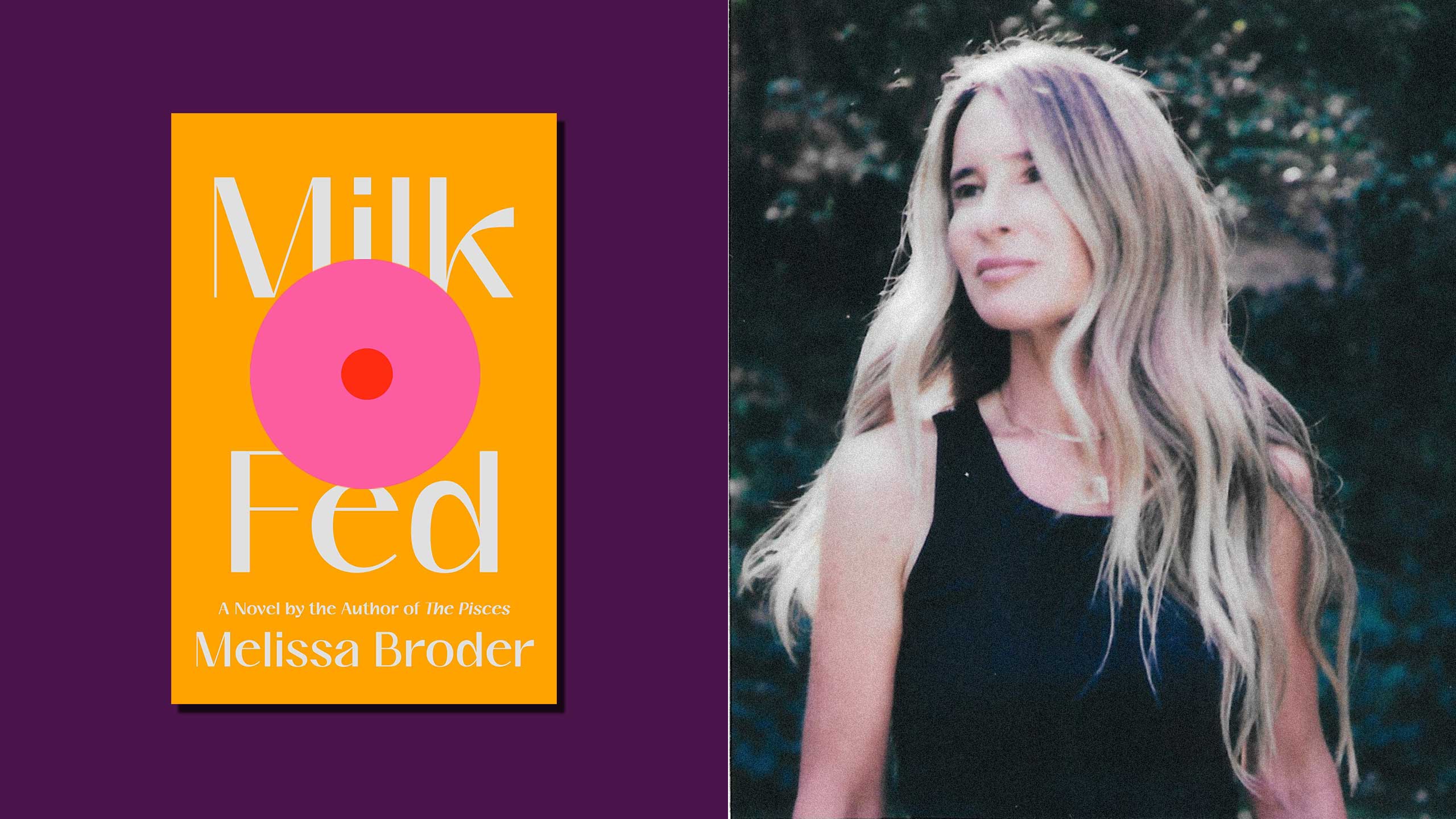There have been many crimes committed under the TV tropesification of criticism—that is, the conflation of simply observing tropes in media with having mounted an actual critique based on that observation. One of the worst transgressions has to be the reframing of erotic projection as a distinctly male pursuit that automatically cheapens whatever work in which it’s found. The creators of aughtsy hipster romcoms like Garden State, Eternal Sunshine of the Spotless Mind and 500 Days of Summer were blasted on the feminist blogs for years over their purported failure to make their so-called “manic pixie dream girls”—played by Natalie Portman, Kate Winslet and Zooey Deschanel, respectively—as well-rounded as the men at their centre, a line of criticism that makes zero sense if you actually think about it. These movies were all about falling for the idea of a person and clinging to that abstraction long after she’s gone. To make the love interests as fully rounded as the men who’d fallen for them would have undermined the very thing that those films were trying to explore in the first place! Has the male art defender logged on? Oh, god, I think she has.
A growing body of contemporary fiction might very well redeem this trope as a worthy site of artistic introspection that all genders can partake in, raising the manic pixie dream girl up from the depths to which we’ve flung her. Erotic projection plays a key role in Raven Leilani’s Luster; Torrey Peters’ Detransition, Baby; Kiley Reid’s Such a Fun Age; and Jackie Ess’ Darryl. In these novels, the central characters—all fuck-ups to varying degrees, all women save for Ess’ titular Darryl (though I do feel that’s debatable)—are faced with the daunting but necessary task of trying to figure out who they are. Understandably terrified at that mortifying prospect, they look to others to do the work for them. They dump their decision-making onto unsuspecting acquaintances—their lovers, bosses, employees and friends—whom they recast as all-knowing oracles with the power to save them from themselves. Some of these one-sided devotional relationships radiate with an unspoken eroticism. Others are explicitly sexual, as with Peters’ protagonists, Reese and Amy. All of them end up failing the characters. But what would you expect? If there’s a shared takeaway from all these books, it’s that you can’t expect others to save you. To paraphrase those Smokey the Bear PSAs: Only you can prevent self-sabotage.
Milk Fed, a new novel by The Pisces and So Sad Today author Melissa Broder, finds a similarly lost protagonist implicating others in her existential spirals. Like the aforementioned titles, Broder’s sets itself against a tableau of white American family-making—no coincidence for a story about finding oneself, given how often people (fictional or otherwise) assume that getting married or having kids will shortcut some meaning into their lives. Milk Fed differentiates itself, however, by making that white American tableau a distinctly Jewish one. “Way more Chanel bag Jew than Torah Jew,” Rachel, its protagonist, clarifies.
Rachel is a twentysomething comedian living in Los Angeles. Despite her Hollywood surroundings, Rachel’s life is aggressively unglamorous. By day, she works in talent management, kid-gloving the careers of neotenous heartthrobs with dull concerns and “exhausting” haircuts, all the while fixated on her next meal and how little of it she’ll eat. By night, she binges alone, judged only by her IKEA furniture. Her apartment’s streamlined furnishings reflect her disordered eating habits. “I wanted to be perfect, and by perfect I meant less,” she tells the reader, sounding not unlike the version of Broder we met in the So Sad Today essay, “I Want to Be a Whole Person but Really Thin.”
Rachel’s eating disorder, we learn, is her suburban New Jersey mother’s doing, the by-product of her own shame at having fat parents. “I felt most Jewish when my grandparents…would drive me to New York and take me on a tour of all the old culinary haunts of our tribe,” Rachel recalls. Her mother intervened at puberty, replacing the onion rolls and creamed herring, the black-and-white cookies and hot pastrami sandwiches with cottage cheese, melon and carrot sticks. The broader implications around whiteness, womanhood, size and assimilation are clear but not didactic. It’s a difficult balance to strike, especially in a first-person narrative told by a character so averse to confrontation, but Broder strikes it as well, just as she does in capturing the claustrophobic feel of a life defined by ritualistic eating and willful deprivation.
As an adult in L.A., Rachel carries on those restrictive dietary traditions, even after she decides to “detox” from her mother at the behest of her therapist. Doing so doesn’t actually free her from her mother’s grasp, as she simply finds new women to project her mommy issues onto—like Ana, her office manager with an hourglass shape and “subtle fillers.” Rachel is desperate for Ana’s approval, both at work and in her late-night mommy-domme fantasies. On a scale of one to obviously, how unsurprised would you be to learn that Rachel stopped dating women in college after her mother shamed her out of it?
Another canvas on which Rachel’s projected intergenerational trauma plays out is Miriam, a woman working the counter at one of Rachel’s go-to froyo spots. Through Rachel’s eyes, Miriam is everything she’s not: Fat, Orthodox, free, happy. Rachel is at first disgusted by Miriam—a defensive posture, really, not that she understands that—but that soon gives way to cautious intrigue then finally to burning lust. Embracing her attraction to Miriam allows Rachel to embrace all that she’s been denying herself: Calorie-filled foods that actually taste like something, a larger body, a gayer haircut. Miriam and her family’s old-country Jewishness only amplifies Rachel’s desire, though her “shtetl fantasy,” as Broder described it in a phone interview last month, is mostly just that: A fantasy.
“In my last book, The Pisces, there was a merman, and the merman was the protagonist’s love interest,” the author told me from her home in L.A. “People often ask me, ‘Is Theo the merman even real?’ Well, how real is anyone we’re ever romantically obsessed with? I feel like so much of love comes from within us and is often a lot of projection, especially in the early days of a relationship. That’s when you can still make a person into a drug. They haven’t always become human to you yet.
“Miriam is very free in a way that Rachel is not, so I think Rachel at first perceives Miriam as completely free,” she continues. “But what human among us just, like, doesn’t have their shit? What human among us is completely free? Rachel definitely does project that [complete freedom onto Miriam], and with that comes a sort of shtetl fantasy—but there’s no pogroms in her shtetl fantasy.”
In her review for the New York Times, novelist Lucinda Rosenfeld writes that Milk Fed is about “a young woman with an eating disorder who finds salvation in the arms of an Orthodox Jewish frozen yogurt scooper,” though the text very much refutes that framing. Miriam doesn’t save Rachel; she never had the power to. Maybe the embellished version of her who only existed in Rachel’s mind could have, but the real Miriam—Orthodox, though not nearly as strict about it as other families in her community; fat because she’s fat and not because Rachel needs her to be—never could have. (Nor could Rachel save Miriam from her own internalized homophobia, the extent of which we’ll never know given the novel’s first-person perspective.) Only Rachel could save Rachel, Broder’s narrative argues. Like Dorothy in The Wizard of Oz, she was her own manic pixie dream girl all along.
In our speedy Q&A, Broder talks about gender fluidity, the transformative power of love and the dumbest, hottest haircut of all time.
Speed round
What are you up to today?
I woke up and meditated. I was supposed to write, but I fussed around on the internet and did a Zoom call with my psychiatrist. After I finish talking to you, I’m going to try to nap, then go to an event on Zoom.
What are you writing?
I’m working on what I think is my next novel. It’s something I actually already wrote and then put in a drawer. I’m basically ripping it up and editing it. Milk Fed started similarly. I wrote this really, really awful short story back in college. That was probably the earliest inception of Milk Fed. But the story was literally so bad. That’s probably why I wrote poetry for the next 10 years.
Milk Fed revolves around a complicated relationship. How do you conceive of who Miriam is for Rachel?
Love can, and often does, provide a catalyst for our own journeys into the depths of the self. Change can result from that journey, but I don’t think any other person can make meaningful, lasting changes for us. We have to do that work ourselves. I definitely don’t think Miriam rescues Rachel, but I think Rachel’s experience of Miriam serves as a catalyst for depth and change.
Speaking of deeper-seated stuff, I think a case can be made for a trans or gender nonconforming reading of Rachel. I’m thinking about references to a phantom cock, to chest binding, to dissociating during sex, to her imagining herself as a male partner during sex. Was there any intention to explore gender nonconformity or transness with this character?
There is a lot of fluidity in my books. You’ll see a lot of characters who identify as women who have cocks. I’ve seen some old school feminist readings of my work that imply that it’s a result of, like, penis envy which I think is very reductive. I don’t know what Rachel’s future holds in terms of her gender, though I should probably figure that out since we’re working on Milk Fed as a TV show right now!
I myself feel fluid both sexually and internally in terms of gender. This is the cheesiest thing, but I do think creating a character is sort of like having a kid. When you give birth to a character it’s gonna have some of your DNA right?
I appreciated that you chose Hollywood as the setting of this very unglamorous novel. The book deglamorizes the story of the thin, rich, young woman in L.A.
It was really fun to do that. I moved to L.A. seven years ago from New York because my partner has health issues and had to live somewhere warmer. There is so much rich people bullshit here, so much that is ripe for the making fun of. It was great to convey some of that silliness.
Yeah, I can imagine. I love the line in the book about a young star’s pompadour haircut being “exhausting.”
You’re welcome. I’m secretly obsessed with that hairstyle. I feel like you could put that hairstyle on a tree and I would be attracted to it. I needed to take some of its power. But it’s also really silly—here I am going after this hairstyle that has caused me such lust and agitation.
Rachel experienced a much more serious roller coaster of multidimensional attraction and revulsion to her own desires.
When I write sex, my first drafts are often to turn myself on. I’ve been wanting to tell this story that’s been haunting both my fantasies and my psychology for many, many years. It’s a question of being attracted to that which we are afraid to give to ourselves. Our deepest fears for ourselves, the things we try so hard to control, we’re attracted to the flipside of them. We’re attracted to the idea of abandon and release. We are afraid to allow ourselves the things we deeply want the most.
Milk Fed is published by Simon & Schuster in the United States and Canada.


 Why you can trust Xtra
Why you can trust Xtra


